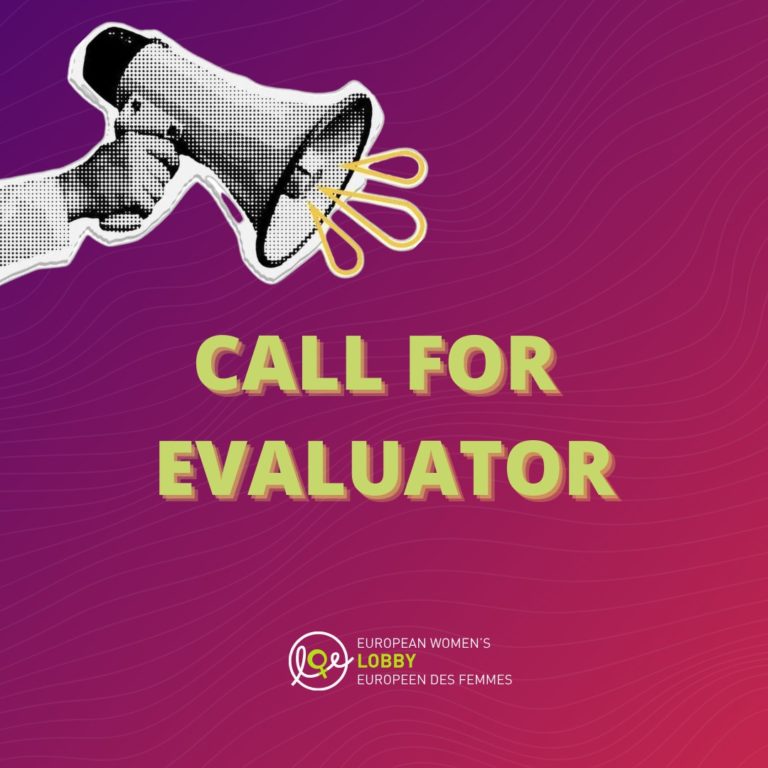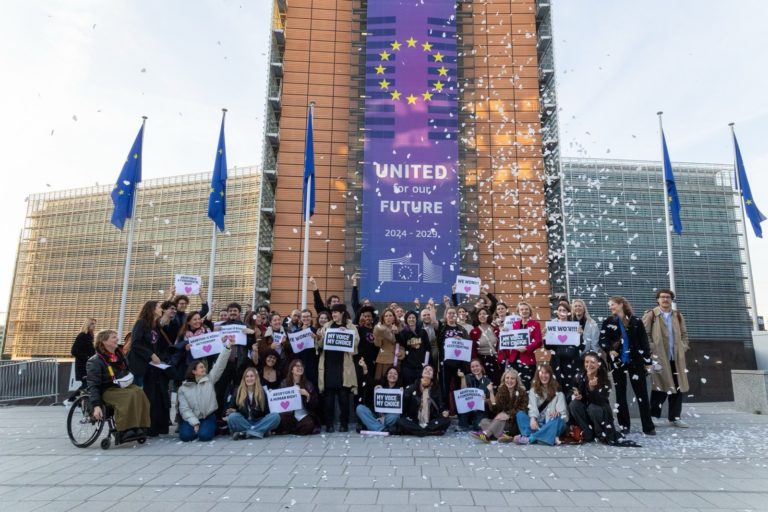[Brussels, 7 November 2018] On the invitation of Oxfam Intermón, Mary Collins, EWL Secretariat, attended the study presentation “Raising their voices against precariousness. Women’s experience of in-work poverty in Europe” on 7 November 2018. The event was hosted by Tania González & Ernest Urtasun, Meps and listed as speakers Enrique Maruri, Director of Campaigns and Citizenship, and Ana María Claver Muñoz, Researcher and responsible of the study, from Oxfam Intermón.
The report focuses on in-work poverty, wage inequalities and precariousness at work for women in the EU, analyzing their structural causes. It investigates these phenomena within the formal sector, which is predominant in the European labour market, focusing on employees rather than self-employment. The report draws from the existing research and statistics, but is complemented by the experiences of 26 working women living with in-work poverty, wage inequalities and precariousness in Italy, France, Spain and the UK.
The report stresses how, according to research, the global crisis initially resulted in a reduction of the gender gap by leveling down the working conditions faced by men. Nonetheless, while the latter improved during the recovery phase, women’s remained the same or got even worse. As highlighted by the report, this reinforces long-standing trends around women’s labour market participation, characterized by pay discrimination.
Social norms and gender inequality perpetuate labor market segregation and devaluate women’s contribution to the labor market. The situation is exacerbated by the stigma attached to certain social characteristics, such as age, race, social class and physical ability, which have a huge impact on women’s ability to find work. As stressed in the report, “gender intensifies the disadvantages associated with inequalities and social identities”.
The report also highlights how a large part of women’s work remains invisible, despite being the cornerstone of Europe’s economic development. Women’s domestic and unpaid work roughly corresponds to 13 percent of the global GDP, amounting to $10 trillion of output per year. Nonetheless, efforts to acknowledge the real value of women’s work remain insufficient.
In addition, the weight of the global economy has severe repercussions on women’s physical and psychological wellbeing as well as on their personal relationships. As explained in the report, not having enough money to make ends meet, demanding unpaid and paid work, a lack of free time, dangerous working conditions, lead to a state of constant anxiety and stress.
That is why, based on the aforementioned underlying factors and structural causes and on the testimony of EU women experiencing in-work poverty, the report makes a number of policy recommendations:
1. Ensure a minimum level of income to afford a decent life for all workers
2. Promote quality of work and decent working conditions in the EU, preventing labour rights violations towards the workers in most vulnerable situations as a prerequisite of decent work.
3. Tackle the care crisis
4. Support collective bargaining, women’s economic empowerment and gender equality at work
5. Develop gender-sensitive statistics
The report can be downloaded here.



